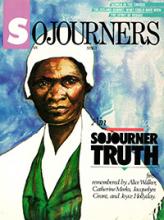On October 2 the Washington Post published a story describing a Reagan administration campaign of deception designed to make Libyan leader Moammar Gadhafi think that, among other things, he was about to be attacked again by U.S. bombers. The story revealed a plan that was adopted at a White House meeting August 14 and detailed in a three-page memo from national security affairs adviser John M. Poindexter to President Reagan.
According to the Washington Post, the Poindexter memo said "one of the key elements" is that the strategy "combines real and illusionary events--through a disinformation program--with the basic goal of making Gadhafi think that there is a high degree of internal opposition to him within Libya, that his key trusted aides are disloyal, and that the U.S. is about to move against him militarily."
On August 25 the Wall Street Journal printed a front-page story detailing as fact much of the false information generated by the administration plan. For the next few days, U.S. TV stations, newspapers, and radio contained many reports describing renewed Libyan backing for terrorism and an almost certain U.S. military response. The false reports were based on information provided by administration officials. White House spokesperson Larry Speakes, speaking on the record at the time, called the false report in the Wall Street Journal "authoritative."
Read the Full Article

